- News
- Reviews
- Bikes
- Accessories
- Accessories - misc
- Computer mounts
- Bags
- Bar ends
- Bike bags & cases
- Bottle cages
- Bottles
- Cameras
- Car racks
- Child seats
- Computers
- Glasses
- GPS units
- Helmets
- Lights - front
- Lights - rear
- Lights - sets
- Locks
- Mirrors
- Mudguards
- Racks
- Pumps & CO2 inflators
- Puncture kits
- Reflectives
- Smart watches
- Stands and racks
- Trailers
- Clothing
- Components
- Bar tape & grips
- Bottom brackets
- Brake & gear cables
- Brake & STI levers
- Brake pads & spares
- Brakes
- Cassettes & freewheels
- Chains
- Chainsets & chainrings
- Derailleurs - front
- Derailleurs - rear
- Forks
- Gear levers & shifters
- Groupsets
- Handlebars & extensions
- Headsets
- Hubs
- Inner tubes
- Pedals
- Quick releases & skewers
- Saddles
- Seatposts
- Stems
- Wheels
- Tyres
- Health, fitness and nutrition
- Tools and workshop
- Miscellaneous
- Buyers Guides
- Features
- Forum
- Recommends
- Podcast
OPINION
“Entitled motorists will stop at virtually nothing to drive where they want”: My week as a human bollard in one of Britain’s most controversial LTNs
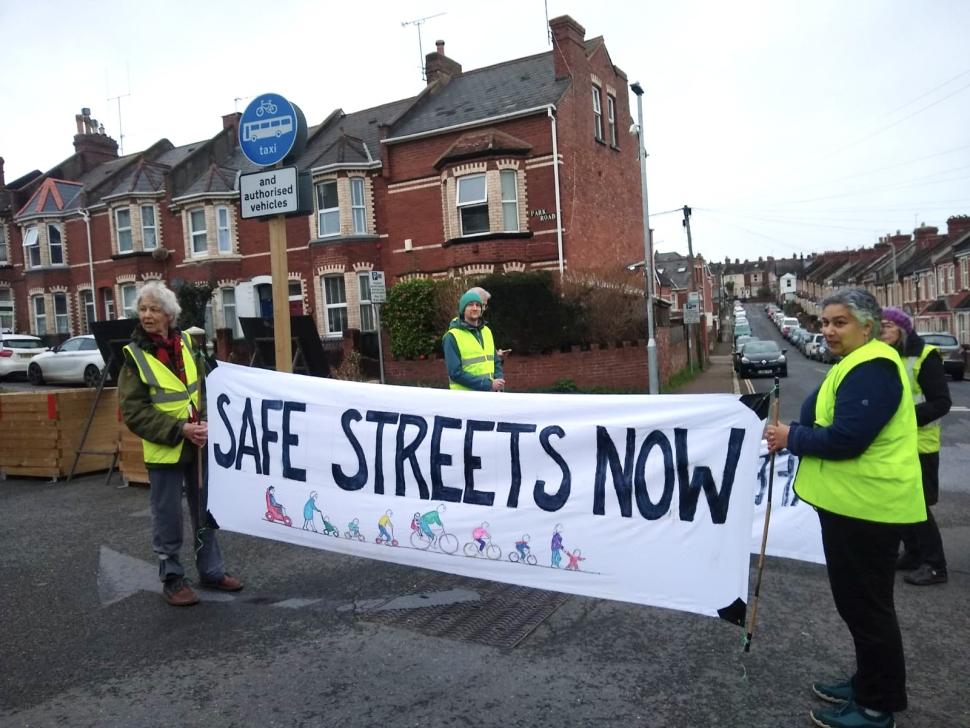 Human bollards Exeter (@ExeterCycling/Twitter)
Human bollards Exeter (@ExeterCycling/Twitter)The Heavitree and Whipton Active Streets Trial in Exeter has proved one of the most controversial of the plethora of contemporary low traffic neighbourhood schemes that have popped up across the UK in recent years.
Since its introduction in August, the traffic-calming initiative has been the constant subject of protests, vandalism, intimidation, and even an aborted attempt in January by some council officials to bring the 18-month trial to an immediate and premature halt (while also featuring as a segment on the road.cc Podcast).
Last month, a group of pro-LTN campaigners in the city – taking their cue from a similar plan in Oxford – acted as ‘human bollards’ in an attempt to enforce one of the LTN’s frequently violated and vandalised bus gates, where two cyclists, including a child and a mother with a baby, had been struck by trial-flouting drivers.
The week-long action, which saw the campaigners block the bus gate to through traffic themselves, while holding up a banner demanding ‘Safe Streets Now’, eventually forced Devon and Cornwall Police to announce that it will begin to undertake “random and unpredictable enforcement” at the entrances to the low traffic neighbourhood.
Here, Exeter-based cycling activist Caspar Hughes, a one-time London bike courier and founder of static track bike racing events company Rollapaluza before diverting his attentions to campaigning for safer roads for cyclists, shares his experience of a tumultuous week as a ‘human bollard’ at the Heavitree and Whipton Active Streets Trial.
While Hughes’ experience on the LTN frontline was far from serene – the group was on the receiving end of countless displays of dangerous driving, intimidation, aggression, and abuse – he nevertheless reckons that the action underlined the strength of local support for the trial, and why the tide may finally be turning against a worldview that sees driving as a right, and not a privilege…
What can we do?
In early February this year a driver hit a cargo bike outside a school in Exeter. There was a child in the cargo bike, but thankfully both the child and the mum escaped injury.
This crash sparked a thought in my mind. What can we do to stop this from happening again? We know that the school is in the new Low Traffic Neighbourhood (LTN) in Heavitree and Whipton, Exeter’s first contemporary LTN. The school is adjacent to one of the two bus gates in the LTN.
Shortly before this incident, I had recently been to the Exeter Cycling Campaign’s AGM, where they always have an interesting guest speaker. This year it was Robin Tucker, who has been successfully campaigning for safer neighbourhoods for cycling and walking in Oxford. One of the campaigns he discussed was their human bollard campaign. It was his talk that gave me the inspiration I needed.
> Why I risk prison to make our roads safer and save our planet – a campaigner tells his story
I was a key member of the London campaign group Stop Killing Cyclists before I moved back to the West Country.
The group was active when Boris Johnson was mayor of London, and in fact his deputy mayor said that the campaign’s “Die Ins” were instrumental in generating a conversation among London’s general public that building protected cycling lanes would stop people being killed whilst they were cycling, while also lighting a fire under their administration to start to build that network of cycling lanes.
Also, at this time London’s first contemporary LTN was being implemented in Waltham Forest. Why do I mention this? Because, as I was campaigning about cycling safety, I got to know many of the campaigners, some of whom I now consider friends, who worked tirelessly to get their LTNs off the ground. It also means I have good connections to national cycling and walking transport campaigners and a fair amount of knowledge about the history of contemporary LTNs and how the local populations adapt their behaviour as the LTNs bed in.
Safe Streets Now!
Back in Exeter, we knew that the police weren’t enforcing the bus gates, despite our county council and the local school telling the public that they were.
Our police service’s local third-party video submission portal is called Operation Snap and it was sending responses to submissions for the bus gate informing us that Devon County Council was dealing with the issue.
The council, meanwhile, was telling us the police were enforcing the bus gate. The reality was that neither of them were doing any policing, so the children going to school were being put in danger and no one was doing anything about it.
I successfully persuaded a fellow group of local Exeter folk that we should adapt Oxford’s human bollard action to suit our city. We decided to start a week of actions when school started back after the spring half term.
Our Human Bollard group was small, but with a broad range of experience. One of the women had delivered non-violent direct action (NVDA) workshops in the recent past, and she offered to run a training session for us. Another was an experienced journalist who also had press release-writing skills, another was an ex-local councillor from the area, another had sign writing skills, and one of us is an artist, which is why the banners were so beautiful. Others, including me, have extensive campaigning knowledge and skills.
We met up, chose the simple ‘Safe Streets Now’ slogan for the banners, and ran our own non-violent direct action training. There are two bus gates in the trial area; one of them had the signs vandalised and painted over. Before our Human Bollard planning meeting we cleaned the signs so the public could see them again.
We quickly realised that we wouldn’t have enough people to run a team of human bollards at each bus gate, so we decided to focus on the gate closest to the school. The plan was for one team to attend twice a day when the children arrived and left school, for a week.
Whilst some of the group had experience of NVDA, most hadn’t, so I organised a conversation by video conference with some of the human bollards from Oxford.
They confirmed what I thought, that entitled drivers will stop at virtually nothing to drive where they want, whenever they like. We were about to find that out first hand.
Fear and loathing at a bus gate
The Safe Streets Now human bollard team stepped into the road in earnest for the first time on Monday 19 February at 7.30am. Our intention was to protect the children going to school by stopping unauthorised vehicles from using the bus gate.
The week that followed was tough, really tough in places. During each one of the ten sessions, people shouted at us, drivers repeatedly threatened to drive over us, and numerous times the banners were ripped out of our hands.
People lied about what we were doing. Online, in local Facebook groups and face to face, we were being smeared as being violent and aggressive. Our traffic cones and signs were thrown around, there were threats to throw paint over us, and we were trolled extensively on social media, receiving messages like this one Dave sent me:
Twice, drivers drove directly through the people holding the banners. The second time this happened, one of them was hit, the driver drove off with the banners wrapped around his car. I called the police and we caught the incident on film. The man who was hit suffered a minor injury to his arm and continued, shaken but undeterred. The police are currently investigating the driver.
We wrote a press release and sent the footage to BBC Spotlight and Devon Live, before we shared it on our social media channels. Both the BBC and Devon Live covered the crash. BBC Spotlight included a segment on their 6 o’clock news program that evening.
The press had started before we had even stepped onto the road, with Devon Live, the BBC, and road.cc all writing articles about the Human Bollards. During the week, Devon Live also wrote about how the debate had turned ugly and left a community divided.
Tensions boiled over this morning in #Exeter as campaigners who support the #LowTrafficNeighbourhood trial stopped 50 drivers in an hour from flouting the restrictions@ExeterCycling @countcaspargh
More here: https://t.co/WGTQSrPiwm pic.twitter.com/KMDQgTQfPC
— Greatest Hits Radio Devon News (@GHRDevon) February 19, 2024
The following day, the police were called again, this time by a mum who was concerned that one of the people shouting at us was going to turn violent. They arrived and explained that as we were letting authorised vehicles through the bus gate, we were not obstructing the highway. Our actions weren’t illegal.
Despite all the anger and aggression, the Safe Streets Now team remained resolutely calm and peaceful. We often had to disengage with people shouting at us or throwing traffic cones around, but we let them finish and calmly collected the cones, repaired the banners, and got back into position.
Turning the tide
Something was happening as the week progressed. Whilst the intensity of the people opposing what we were doing remained high, there was a noticeable increase in support.
One morning, whilst a parent was politely challenging us, a man turned up with his own hi-vis jacket and asked to join us as another human bollard. He stayed with us for the rest of the week.
When a Devon Live reporter visited, people who opposed the scheme were talking and shouting at us the whole time. There were also five local residents who came to express support. One elderly man told us that the people who oppose this scheme don’t realise that nine out of ten people he knows on the street support the LTN but are too scared to say so. Every one of these five supporters spoke to the journalist, who included their quotes throughout her piece. If you create a safe space for people to express support, they do.
> Exeter Active Streets Trial: LTNs vs dodgy data on the road.cc Podcast
It turns out that some friends of mine live on the road where this bus gate is located. They explained that as the week progressed the locals started to become more confident in our peaceful and calm demeanour. Which meant that by the last session we had around 15 people milling around chatting and supporting us.
We had successfully highlighted that the local folk were concerned about the trial. We turned the reporting around and enabled the local press to write positive stories about why it is better for the street to have fewer vehicles using it. Our local MP had requested a meeting with the county council and the police. The meeting happened ten days after we finished the first week of Safe Streets Now action, and in a campaign victory, the police have now agreed to start enforcing the bus gates for the duration of the trial.
Hopefully the trial will be successful, and if it is we could see an ANPR installed to better protect the bus gate.
Transport is the UK’s largest emitting sector and private cars are the largest slice of that sector. Transport campaigning is climate campaigning. If we are to meet our Paris Agreement obligations (which are arguably now out of date) we need to see a 45 per cent cut in driven mileage by 2030.
We don’t need one LTN in Exeter, we need every residential neighbourhood turned into an LTN, protected cycle lanes on all main roads, and regular, cheap, and reliable public transport.
At the same time, we need to acknowledge that people have become so accustomed to the privilege of driving, it feels like it is a right.
For them, equality must feel like oppression.
More Opinion
Latest Comments
- Rendel Harris 2 sec ago
Probably a made up story about getting a free bike but I do remember from many years ago – early 2000s maybe? – a rider's bike slid into a ravine...
- HLaB 3 min 32 sec ago
I hope they are trying and failing at satire because you are right its 100% bolloxs
- Rendel Harris 5 min 22 sec ago
I think there are probably a few – though only a few – more than that, if you're talking about deaths from interactions with cyclists rather than...
- peted76 11 min 26 sec ago
I have this image of the National Police Chiefs' Lead for Roads Policing walking into a room and everyone giving her the cold shoulder.. ...
- Hirsute 15 min 35 sec ago
I can't work out this comment - genuine or sarcasm ?...
- wtjs 33 min 25 sec ago
they couldn't reply because of GDPR!...
- mimbike 1 hour 8 min ago
Just how fast was she going on the descent then. Better check Strava.
- hawkinspeter 1 hour 13 min ago
I agree. When someone is considering getting into cycling, then they're not going to want to spend a huge amount of money when they're not sure how...
- Cyclo1964 2 hours 37 min ago
Thank goodness I thought I might have been the only one !
- BIRMINGHAMisaDUMP 3 hours 7 min ago
In a way it would be kinda ineteresting if these right wing zealots got their wish; number plates, insurance - including for children and...
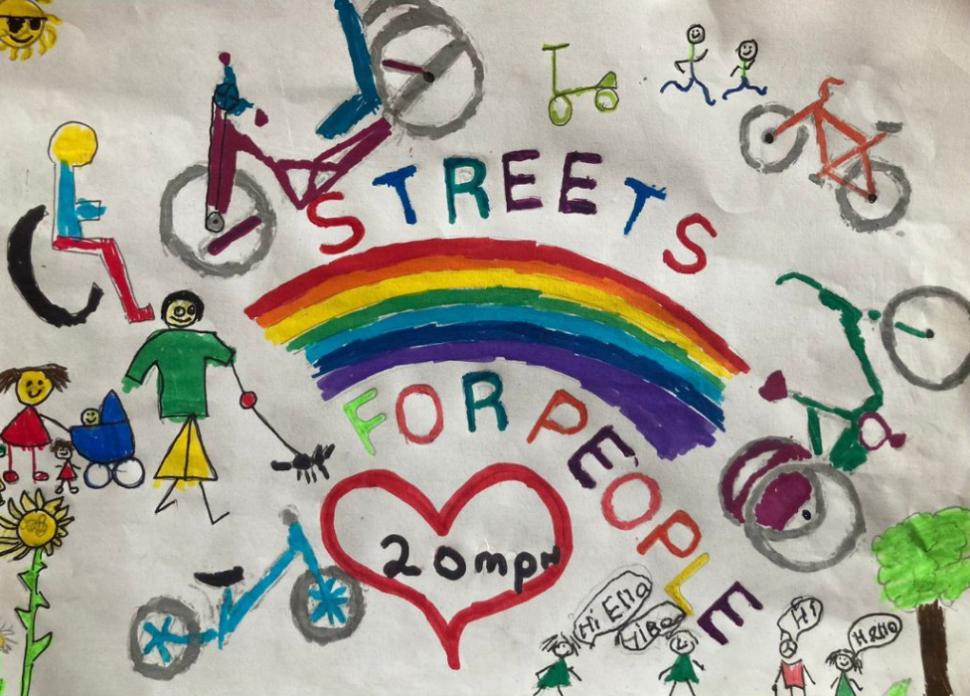
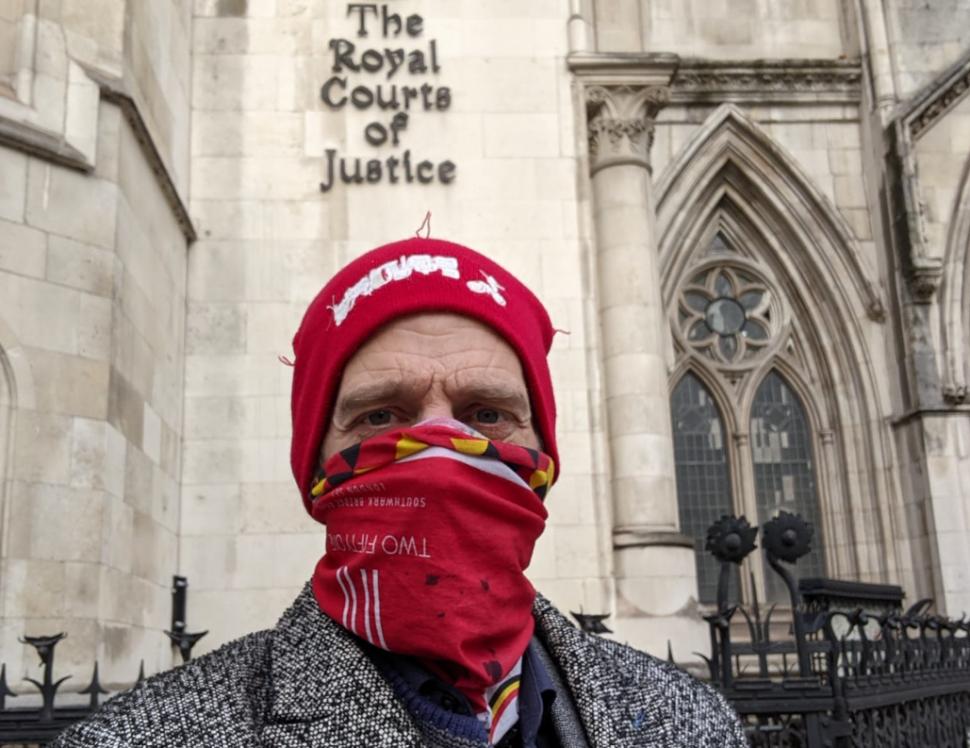
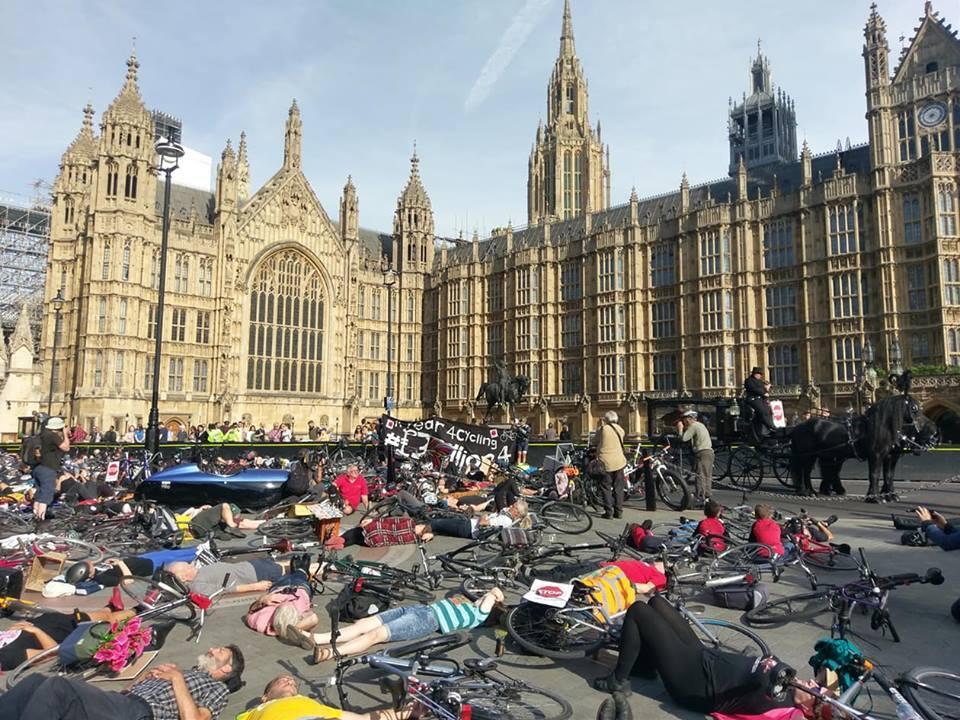
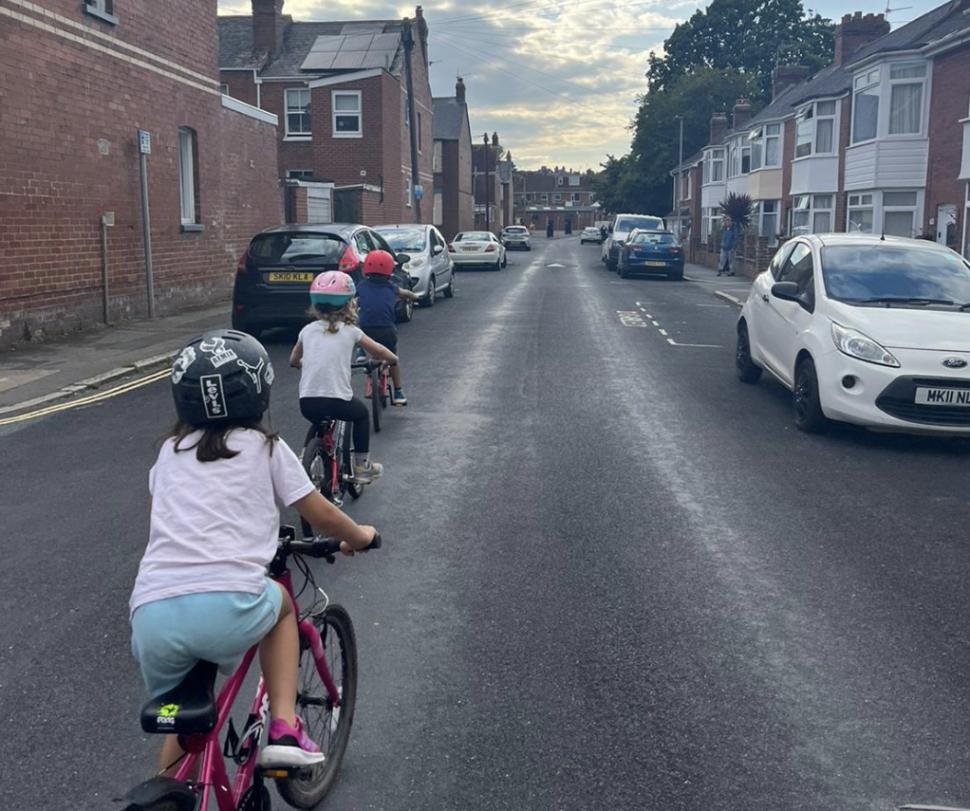
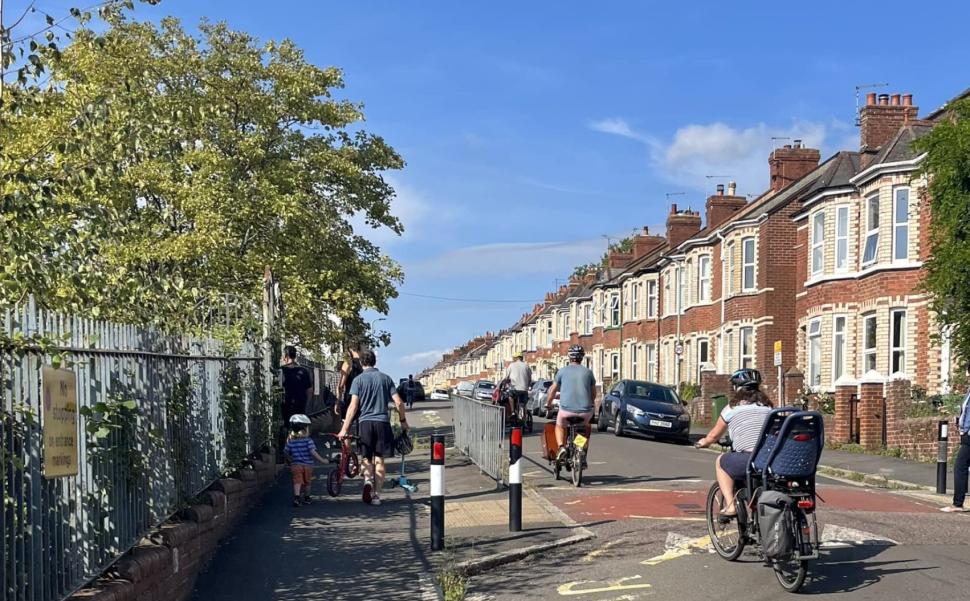
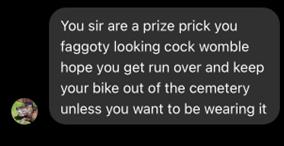
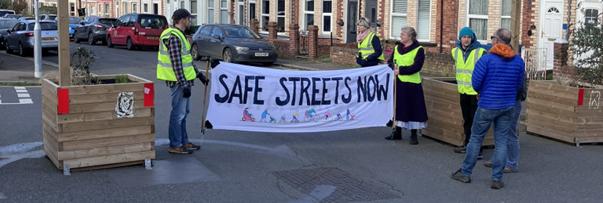
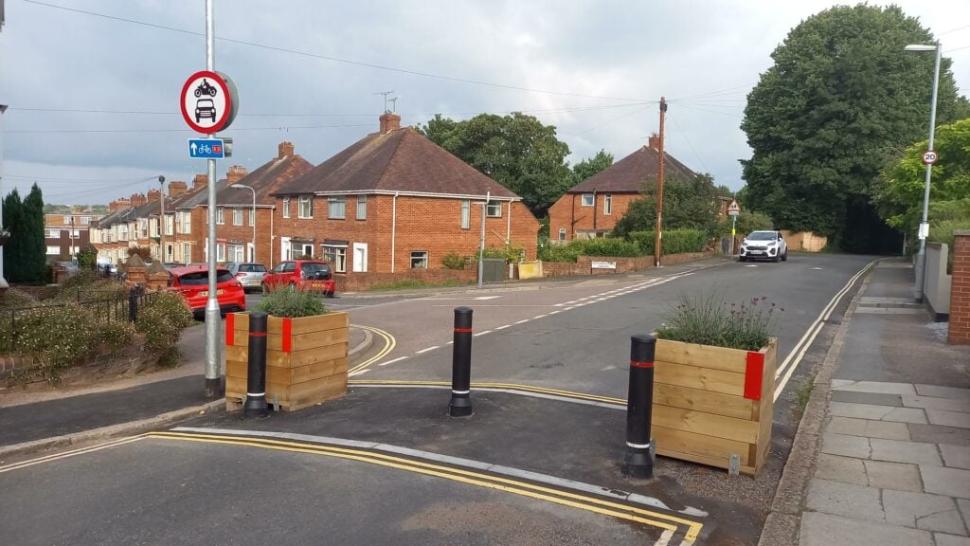
Add new comment
31 comments
Maybe a bit of PPE?
Pages